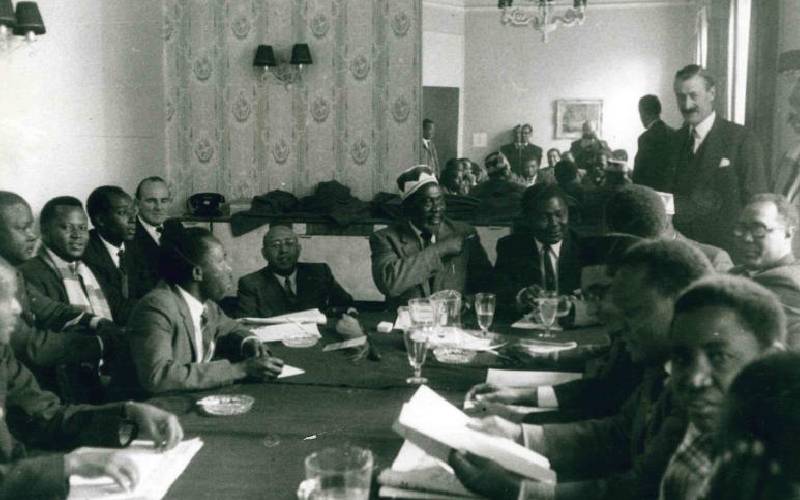×
The Standard e-Paper
Stay Informed, Even Offline

Jomo Kenyatta and other delegates during a get together in Lancaster House in London in 1962.
Rarely do rent defaulters get celebrated by their landlords. One distraught landlord, government papers show, went to the government seeking to be paid 18 months’ rent owed by one Johnstone Kenyatta.